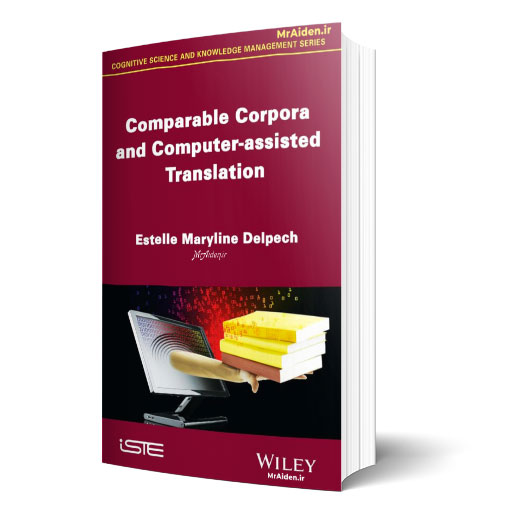
۲۵.۰۰۰ تومان
در این مطلب ما نسخه انگلیسی و PDF کتاب Comparable Corpora and Computer-assisted Translation نوشته Estelle Maryline Delpech را برای شما آماده کرده ایم.
ترجمه به کمک کامپیوتر (CAT) همیشه از حافظه های ترجمه استفاده می کرده است، که مترجم را ملزم به داشتن مجموعه ای از ترجمه های قبلی می کند که نرم افزار CAT می تواند از آن برای تولید واژگان دو زبانه استفاده کند.زمانی که مترجم چنین مجموعهای نداشته باشد، میتواند مشکلساز باشد، برای مثال، زمانی که متن متعلق به یک حوزه در حال ظهور و جدید است.برای حل این مسئله، تحقیقات CAT به استفاده از مجموعههای قابل مقایسه، یعنی مجموعهای از متون، در دو یا چند زبان، که با موضوع مشابهی میپردازند، اما ترجمهای از یکدیگر نیستند، بررسی کرده است.
این کار دو هدف اصلی داشت. اولین مورد ارزیابی ورودی واژگان استخراج شده از مجموعه های مشابه در زمینه یک کار ترجمه تخصصی انسانی است.هدف دوم، شناسایی روشهای استخراج واژگان دوزبانه است که به بهترین نحو با نیازهای مترجمان مطابقت دارد، تعیین محدودیتهای فعلی این تکنیکها و پیشنهاد بهبود.نویسنده، به ویژه، بر شناسایی ترجمه های بارور، مدیریت ساختارهای چندگانه ریخت شناسی، و رتبه بندی ترجمه های نامزد تمرکز می کند.
این آزمایش ها روی دو جفت زبان (انگلیسی-فرانسوی و انگلیسی-آلمانی) و متون تخصصی مربوط به سرطان سینه انجام شده است.این تحقیق تاکید قابل توجهی بر کاربرد دارد – انتخاب های روش شناختی بر اساس نیازهای کاربران نهایی هدایت می شوند.این کتاب در دو بخش تنظیم شده است: بخش اول زمینه کاربردی و علمی پژوهش را ارائه میکند و بخش دوم به تلاش برای بهبود ترجمه تألیفی اختصاص دارد.
کار پژوهشی ارائه شده در این کتاب جایزه پایان نامه دکتری 2014 را از انجمن فرانسوی ATALA دریافت کرد.
Computer-assisted translation (CAT) has always used translation memories, which require the translator to have a corpus of previous translations that the CAT software can use to generate bilingual lexicons. This can be problematic when the translator does not have such a corpus, for instance, when the text belongs to an emerging field. To solve this issue, CAT research has looked into the leveraging of comparable corpora, i.e. a set of texts, in two or more languages, which deal with the same topic but are not translations of one another.
This work had two primary objectives. The first is to assess the input of lexicons extracted from comparable corpora in the context of a specialized human translation task. The second objective is to identify bilingual-lexicon-extraction methods which best match the translators’ needs, determining the current limits of these techniques and suggesting improvements. The author focuses, in particular, on the identification of fertile translations, the management of multiple morphological structures, and the ranking of candidate translations.
The experiments are carried out on two language pairs (English–French and English–German) and on specialized texts dealing with breast cancer. This research puts significant emphasis on applicability – methodological choices are guided by the needs of the final users. This book is organized in two parts: the first part presents the applicative and scientific context of the research, and the second part is given over to efforts to improve compositional translation.
The research work presented in this book received the PhD Thesis award 2014 from the French association for natural language processing (ATALA).
۵ مطلب اخیر از این قسمت برای شما در دسترس است
دیدگاهها
هیچ دیدگاهی برای این محصول نوشته نشده است.